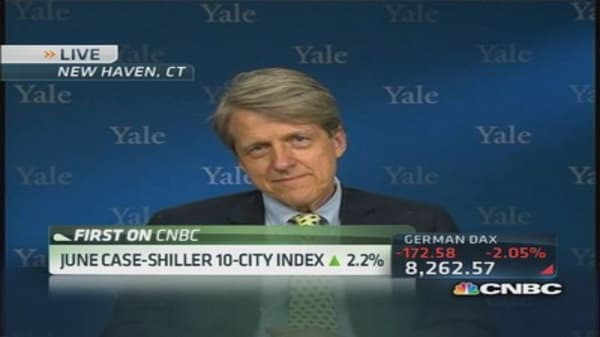All it took was a historic crash that created an epic opportunity: Housing has morphed from a form of shelter to one of the most popular tradable assets, thanks to a huge influx of institutional investors in a mammoth, albeit decreasing, supply of distressed properties. That is why it should come as no surprise the housing market is now nearly as volatile as the stock market.
"We've seen more volatility in real estate in the past five years than we have in the past 500," said Glenn Kelman, CEO of Redfin, an online real estate sales company.
(Read more: Map: Tracking the recovery)
Nothing proved that better than news last week that sales of newly built homes had plunged over 13 percent month-to-month in July while another report showed healthy gains in sales of existing homes in July. Suddenly, bulls became bears, and blame poured from every blog. Rising mortgage rates, sagging confidence, tight credit, tight supply, even bad weather made the long list of woes, but one stood out in particular—investors pulling out of the housing market.





